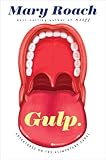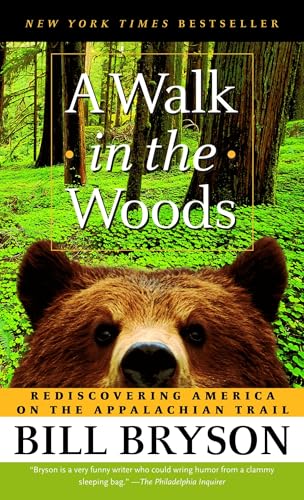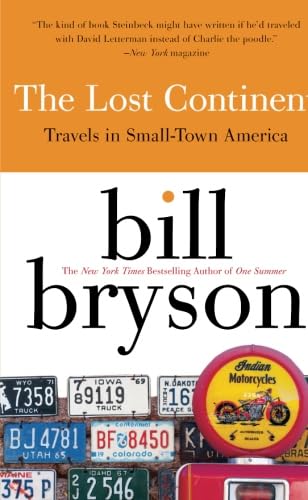 It was inevitable, really. Mary Roach’s previous books have ostensibly been about sex, cadavers, the afterlife, and space travel, but each one has spent a fair amount of time on digestion, excretion, and highly topical fart jokes.
It was inevitable, really. Mary Roach’s previous books have ostensibly been about sex, cadavers, the afterlife, and space travel, but each one has spent a fair amount of time on digestion, excretion, and highly topical fart jokes.
In her latest book, Gulp: Adventures on the Alimentary Canal, Mary Roach finally explores all that happens after you take that bite — not as an entertaining sideshow, but as the focus of 17 entertaining and occasionally bizarre chapters. Megacolons, stimulated saliva, death by constipation, and of course the scientists who study this stuff with aplomb (and an occasional apology): it is, as it were, all in there.
I interviewed her while she was in Seattle for her book tour.
The Millions: Your past work has focused on bringing topics that are creepy or lurid or awe-inspiring back down to earth. This one’s primarily about overcoming disgust. Did you find it challenging to make digestion and excretion palatable for your audience?
Mary Roach: Well, I think digestion is another lurid, taboo subject — particularly from the navel down. But even what goes on in the mouth is an unthinkable, revolting thing that no one wants to think about. There was a sense that this was right up my stinky little alley.


 TM: Packing for Mars came out the same year that NASA retired the Shuttles and the Opportunity rover broke records for the longest Mars mission. Stiff came out around the same time that shows about forensic science became the hot new thing…
TM: Packing for Mars came out the same year that NASA retired the Shuttles and the Opportunity rover broke records for the longest Mars mission. Stiff came out around the same time that shows about forensic science became the hot new thing…
MR: And Six Feet Under.
TM: Right. Was there something that made you decide: yes, 2013 is the time to publish a book about the digestive tract?
MR: You know, I think the whole obsession with food had hit an unprecedented level, in terms of people photographing every meal and posting it on Instagram. Food has moved so far away from just a way to stay alive and take in sustenance to a point where it’s now almost high culture. So it makes sense to look past the borders of the lips and take a peek at what goes on after the food leaves the plate.
On the tour, my publicist set up events with people like Chris Kimball and Ted Allen, which makes for a really interesting conversation. We tend to elevate food to a sensual, cultural place, but for someone like Chris Kimball, he’s looking at food as chemistry. And eating is biology.
TM: Two of the most memorable people in your book were William Beaumont, the physician who made a career out of his patient’s stomach fistula, and Andries van der Bilt, the chewing scientist at Utrecht who will probably be the last researcher of his kind at the university. In other words, in the book you go from the early days of science virtuosos to very specialized people doing narrow and admittedly gross stuff. Is that how the field of gastro-intestinal science looks right now?
MR: It’s really hard to get funding for pure science just for the sake of figuring out how things work. It’s a lot easier to get funded if you have a practical application for things. Also, a lot of it’s been figured out.
I’m not a scientist, so I’m going out on a limb here, but I do get the sense that the more you know, the more you realize you don’t know very much, and there isn’t an end point. So there’s always more to be done — there’s just not as much funding for it anymore. It’s more science in the service of the food industry.
But even in that world, there are characters like Erika Silletti, who are so awed and amazed by what they’re discovering. She has this infectious enthusiasm for…spit!
TM: You’re in the middle of your book tour now. What do you like to present at your events?
MR: I don’t do a lot of readings when I do talks. Some of them are billed as readings, but I wouldn’t call them that, really. I find that if you read to non-fiction to people for more than a paragraph, people will glaze over. So I’ll read footnotes.
Once of my favorite footnotes in Gulp is where I’m talking about per anum, which is through the anus, and per annum, which is yearly. And I did a Google search for instances where people meant per annum but wrote per anum, and that’s one of my favorites. How many childbirths occur per anum, that sort of thing.
TM: Do you find that people are more squeamish to ask you questions about the digestive tract than they were on your earlier book tours, when the topic was the afterlife or space?
MR: Oh no, no. Once you open the door for them, people want to know all kinds of things. Sometimes people want to know, “I have a mucoid plaque, can you tell me what to do,” and I have to say, “I don’t have an M.D., I can’t dispense medical advice — nor do I really want to.”
But people have great questions. The other day I was doing an author lunch at Google; people had a lot of questions about rectal smuggling.
TM: Early on in the book, you find out that your palate isn’t developed enough for you to be on a professional olive oil tasting panel. Any other potential avenues of research that never worked out?
MR: I wanted to go to Food Valley when someone was actually involved in an experiment, but I couldn’t seem to time it right. There were a couple subjects, but most were not particularly interesting. There’s someone there with a tube hooked in mouth, and it squirts in something that they’re tasting, and they make a note of it. It’s not particularly scintillating, and it didn’t make it into the book.
There’s a woman who studies pica (people who ingest non-food) and she studies in Zanzibar with women who eat a variety of clays. I wanted to do that, partly because I really wanted to go to Zanzibar — that really lies at the bottom of a lot of what I do, I really want to go there, what could I find there? — but it felt a little…off unto itself. When you go all the way to Zanzibar, you want to spend a lot of time on that subject, not just a few paragraphs.
TM: When you first started writing, I think one of your pieces was about the IRS. Then you moved on to the afterlife, cadavers, space travel. What sort of writers made you think, I want to write about things that are kind of out there, or that people might not think about all that often?

 MR: The writer who I glommed on to and loved his style was Bill Bryson, when he wrote The Lost Continent. This was before A Walk in the Woods, before he started going huge. I remember reading his books, and I admired his ability to combine information and humor and character. It was inspirational. Every now and then I put a little homage to passages that really got in my head from writers like him, inside jokes to myself.
MR: The writer who I glommed on to and loved his style was Bill Bryson, when he wrote The Lost Continent. This was before A Walk in the Woods, before he started going huge. I remember reading his books, and I admired his ability to combine information and humor and character. It was inspirational. Every now and then I put a little homage to passages that really got in my head from writers like him, inside jokes to myself.
When I was writing Gulp, I had just read Patti Smith’s Just Kids, and when she did something outrageous or pathetic, Mapplethorpe would say to her, “Patti, no.” And when I was with Sue Langston, who’s a sensory analyst — the nose woman — and I asked her, “if you had to choose between a Budweiser and an IPA right now, what would you choose?” and she said, “I would take the Bud,” and I said, “Sue, no.” That was my little homage to Mapplethorpe and that book.
 TM: In 2011 you edited the Best American Science and Nature Writing, so I’m hoping you might pontificate about science writing in general for a second. When you write your books, or when you evaluate science writing, what are you looking for — what should a good science piece accomplish?
TM: In 2011 you edited the Best American Science and Nature Writing, so I’m hoping you might pontificate about science writing in general for a second. When you write your books, or when you evaluate science writing, what are you looking for — what should a good science piece accomplish?
MR: I don’t know if the genre of “science writing” should really exist. We don’t classify “religion writing” or “political writing” as an entirely different register of writing. There’s such a wide range — material that simply explains, others that are strongly narrative. In The Immortal Life of Henrietta Lacks, you learn a lot about cell culturing, but it’s still primarily a story.
For that collection in particular, I tried to do a mix. The Atul Gawande essay, I thought, was beautiful. For someone in that community to stand up — or I should say, sit down and write — about how far the discussion about end-of-life care needs to go in order to really help people. And then the Oliver Sacks piece about prosopagnosia, he’s just a wonderful thinker/writer, he’s more reporting rather than recommending.
For me, there are a lot of valid ways to write about science, and when I was judging that book it was really just what pulled me in and kept my interest and taught me something. There are so many ways to do that.










